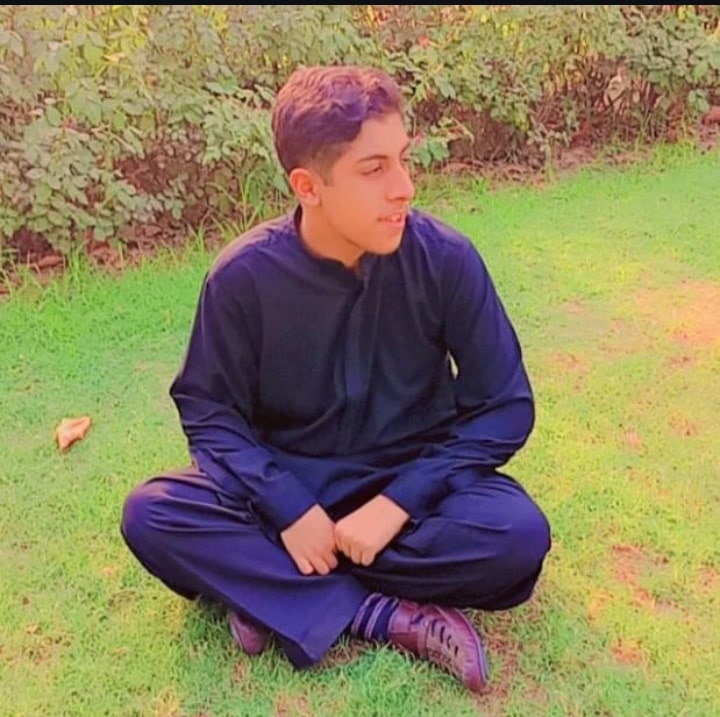Seeking blessing from scholars and righteous people has been a subject of debate among Muslims for centuries. Some people believe that drawing benefit from the relics of righteous people and pious scholars brings them closer to Allah, while others argue this practice has no basis in authentic teachings. In Islamic tradition, true blessing comes from Allah alone, and the guidance of the Prophet Muhammad ﷺ and his Sahaabah (Companions) serves as the purest example for worship and devotion. Understanding the rulings on this matter helps protect faith from practices that may lead to exaggeration about the Prophet ﷺ or open doors to shirk.
Seeking Blessing from Scholars and Righteous People, and Their Relics
Many Muslims have questions about seeking blessing from scholars or seeking blessing from righteous people and whether this is allowed in Islam. Some even believe the relics of scholars or the relics of righteous people may bring them closer to Allah. To answer this, we must look at the Qur’an, Sunnah, and the way of the Sahaabah (Companions).
The idea of seeking blessing from the Prophet ﷺ is also often misunderstood. While Allah placed special goodness and blessing from Allah in his body, his touch, and his belongings, this was unique to him. The Khulafaa’ al-Raashideen and other companions were never treated the same way after his death. Understanding this difference is very important, because it separates authentic worship from practices that may become innovations.
Ruling on Seeking Blessing (Tabarruk) from Scholars, Righteous People, and the Relics of the Prophet ﷺ
Tabarruk means seeking blessing. In Islam, this was only true when connected with Prophet Muhammad ﷺ himself. His hair, his sweat, and even his belongings had goodness and blessing from Allah, but this blessing was not found in anyone else. This is why after his death, the Sahaabah (Companions) never turned to the Khulafaa’ al-Raashideen or other great people for such blessings.
Trying to seek blessing from the relics of scholars or the relics of righteous people can become a means that lead to shirk. If people believe these items carry power, they may slowly give them the same respect as worship. Ibn Taymiyyah, Ibn al-Qayyim, and others explained that this practice has no sharee’ah evidence against relics being sources of blessing. Instead, they warned that such actions are forms of exaggeration about the Prophet ﷺ and may open the door to worshipping people instead of Allah.
Praise be to Allah, and blessings and peace be upon the Messenger of Allah.
Every discussion in Islam begins with praising Allah (Glory and Power, Attributes, Mercy, Words) and sending blessings upon Prophet Muhammad ﷺ. This is not only a custom but an act of du‘aa’ and supplication. When Muslims say this, they remind themselves that real blessing comes only from Allah.
This phrase also brings humility to the heart. It shows that when we talk about issues like tawassul (seeking means of drawing closer) or intercession of the Prophet ﷺ, we must remember that Allah is the only one who grants benefit or removes harm. Starting with His praise reminds us to avoid human exaggeration and focus on worship that is pure.
Ruling on Tabarruk and Tawassul through the Prophet ﷺ and Others
Tawassul means seeking closeness to Allah. This is different from tabarruk. During his lifetime, the Prophet Muhammad ﷺ made du‘aa’ and supplication for people, and Allah accepted. For example, in the blind man hadith, he asked the Prophet ﷺ to pray for him, and his sight was restored. But after the Prophet ﷺ passed away, the companions never practiced this again, proving it was limited to his life.
Scholars like Ibn Taymiyyah, Ibn al-Qayyim, and Shaykh ‘Abd al-Rahmaan ibn Hasan in Fath al-Majeed (commentary on Kitaab al-Tawheed) explained this in detail. They showed that seeking help through the position and status of the Prophet ﷺ or his person is not allowed. This has no evidence from Qur’an or Sunnah and was never done by the companions. Instead, it becomes one of the means that lead to shirk.
Permissible Forms of Tawassul: Through Faith, Love, and Righteous Deeds – Not Status or Person
Islam teaches us the right ways of tawassul (seeking means of drawing closer) to Allah. These include faith, love, and righteous deeds. The Qur’an tells us to call on Allah by His attributes of Allah, His mercy, and His perfect words of Allah. We also learn from hadith to make du‘aa’ and supplication using our own good deeds as a reason.
The people of the cave hadith in al-Saheehayn gives us an example. Three men were trapped by a rock. One prayed by mentioning his honouring parents. The second prayed by reminding Allah how he avoided keeping away from zinaa. The third mentioned fulfilling a trust. Because they were calling upon Allah by deeds, the rock moved, and they escaped. This shows the real power of tawassul lies in deeds, not relics.
| Permissible Tawassul | Not Permissible Tawassul |
| Faith in Allah and His Messenger | Seeking blessing from relics of scholars |
| Love for Allah and Prophet ﷺ | Seeking blessing from righteous people |
| Righteous deeds like prayer and charity | Asking through position and status of the Prophet ﷺ |
| Du‘aa’ and supplication with humility | Believing in the power of relics of righteous people |
Staying on the Path of Authentic Worship
In the end, seeking blessing from scholars or seeking blessing from righteous people is not part of authentic Islam. The Sahaabah (Companions) never did it, and scholars warned against it. The only one whose touch, belongings, and presence carried blessing was Prophet Muhammad ﷺ.
On the Day of Resurrection, people will look for the intercession (shafaa‘ah) of the Prophet ﷺ, and the people of Paradise seeking intercession will also be helped by him. But this is in the Hereafter, not through relics today. Real blessing comes from Allah (Glory and Power, Attributes, Mercy, Words) and is reached by love, obedience, and righteous deeds.
FAQ’s
What does Seeking Blessing from Scholars and Righteous People mean in Islam?
Seeking Blessing from Scholars and Righteous People means asking Allah for goodness through their faith and guidance. True blessing comes only from Allah, not through their relics or status.
Is Seeking Blessing from Scholars and Righteous People supported by the Qur’an and Sunnah?
The Qur’an and Sunnah never taught Seeking Blessing from Scholars and Righteous People through their relics. The companions relied only on Allah, faith, and righteous deeds for blessings.
Why do some people practice Seeking Blessing from Scholars and Righteous People?
Many believe Seeking Blessing from Scholars and Righteous People brings them closer to Allah. However, scholars warn that such practices may lead to exaggeration and become a means towards shirk.
Can relics be used for Seeking Blessing from Scholars and Righteous People?
Seeking Blessing from Scholars and Righteous People through relics is not allowed in Islam. The companions never sought goodness from relics; instead, they relied only on Allah’s mercy.
What is the correct way of Seeking Blessing from Scholars and Righteous People?
The right way of Seeking Blessing from Scholars and Righteous People is learning from their knowledge and righteous actions. Real blessing lies in worship, obedience, and following Allah’s guidance.
Conclusion
The topic of Seeking Blessing from Scholars and Righteous People is often misunderstood. Many think that taking benefit from their relics or personal status is correct. But Islam teaches that blessing comes only from Allah. The companions did not practice Seeking Blessing from Scholars and Righteous People through items or relics. Instead, they focused on faith, worship, and obedience. Real benefit lies in turning to Allah directly.
When we talk about Seeking Blessing from Scholars and Righteous People, we should remember the limits set by Islam. Learning from their knowledge and following their righteous deeds is the right way. Relics and objects do not bring blessing, only Allah does. Seeking Blessing from Scholars and Righteous People should inspire us to increase worship and du‘aa. In this way, we follow the path of the companions and avoid practices that may lead to shirk.

Welcome to Blessing Aura! I’m Muhammad Anas, an Digital Marketer and Ebay Dropshipping Expert with 1 year of experience, I help business, brands and store to grow online. My goal is to run ads and sell effective products for everyone, Let’s achieve more together!

